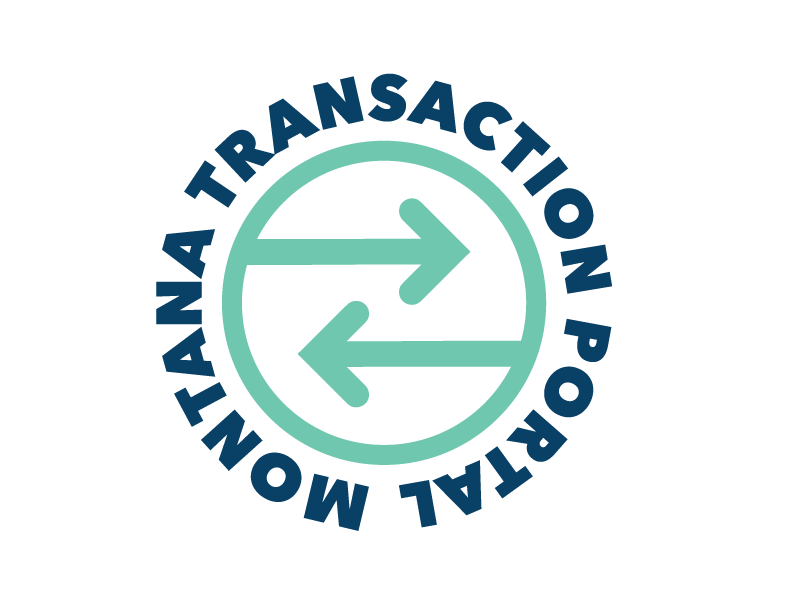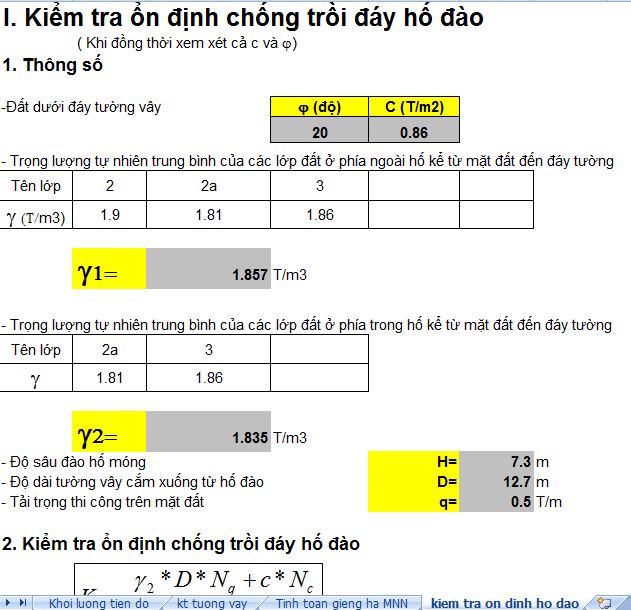Topic Where can i borrow money against my tax refund: Are you looking for a convenient way to borrow money against your tax refund? Look no further! There are several reputable tax preparation services like Jackson Hewitt and H&R Block that offer refund advances. With TurboTax Refund Advance, you could get up to $4000 instantly in as little as 1 minute of IRS E-file acceptance. No loan fees and 0% APR make this option even more appealing. Don\'t miss out on this hassle-free opportunity to get the money you need quickly and easily.
Table of Content
- How can I borrow money against my tax refund?
- What is a tax refund loan and how does it work?
- Which tax preparation services offer refund advance loans?
- YOUTUBE: Loan against Tax Refund 2019: Is it possible?
- Are there any fees associated with borrowing against your tax refund?
- What is the maximum amount of money that can be borrowed against a tax refund?
- How quickly can you receive the money when borrowing against your tax refund?
- Are there any eligibility requirements for obtaining a tax refund loan?
- Can you apply for a tax refund loan if you have a bad credit score?
- What happens if you don\'t repay the loan on time?
- Are there any alternatives to borrowing against your tax refund?
How can I borrow money against my tax refund?
To borrow money against your tax refund, you have a few options:
1. Check with a tax preparation service: Many tax preparation services offer tax refund advance loans. Popular options include Jackson Hewitt and H&R Block. These loans allow you to receive a portion of your anticipated tax refund in advance. You can visit their websites or contact their offices to find out more details and eligibility requirements.
2. File your taxes electronically: To qualify for a tax refund advance loan, you usually need to e-file your tax return. This allows the tax preparation service to verify your information quickly and accurately.
3. Review the terms and conditions: If you are considering taking a tax refund advance, be sure to carefully read and understand the terms and conditions. Pay attention to any fees, interest rates, repayment terms, and eligibility requirements for the loan.
4. Complete the application: Once you\'ve selected a tax preparation service that offers tax refund advances and reviewed the terms, you will need to complete the loan application. This typically involves providing personal and financial information, including your Social Security number, income details, and anticipated tax refund amount.
5. Wait for approval: After submitting your application, you will need to wait for approval from the tax preparation service. The approval process can vary, but typically the decision is made within a short period.
6. Receive the loan: If your application is approved, you will receive the loan amount in cash, check, or direct deposit. It\'s important to note that the loan amount will be deducted from your actual tax refund when it is issued by the IRS.
Remember that borrowing against your tax refund is not always the best financial decision, as you may incur fees and interest charges. It\'s essential to carefully consider your options and the overall cost of the loan before proceeding.

READ MORE:
What is a tax refund loan and how does it work?
A tax refund loan is a short-term loan that allows you to borrow money against your anticipated tax refund. It is typically offered by tax preparation services like Jackson Hewitt or H&R Block. Here\'s how it works:
1. Eligibility: First, you need to determine if you are eligible for a tax refund loan. The requirements may vary depending on the tax preparation service, but typically, you must have a filed tax return and expect a refund.
2. Application: You\'ll need to apply for the loan with the tax preparation service. This can usually be done online or in person at their office. You\'ll be required to provide your personal information, including your Social Security number, and details about your income and tax return.
3. Loan approval: The tax preparation service will review your application and determine if you qualify for a tax refund loan. They will consider factors such as the expected amount of your tax refund, your income, and your credit history.
4. Loan disbursement: If approved, you will receive the loan amount, which is usually a portion of your anticipated tax refund. The exact amount will depend on the tax preparation service and your eligibility.
5. Repayment: When you receive your actual tax refund from the Internal Revenue Service (IRS), it will be deposited to the tax preparation service. They will deduct the loan amount plus any applicable fees or interest charges, and the remaining balance will be given to you.
It\'s important to note that tax refund loans often come with high interest rates and fees, so you should carefully consider whether it is the best option for you. In addition, the actual timing of your tax refund may differ from the estimated time frame, and if your refund is less than anticipated or if there are any issues with your tax return, it could affect the amount you receive and your ability to repay the loan.
Which tax preparation services offer refund advance loans?
Based on the Google search results and my knowledge, there are two tax preparation services that offer refund advance loans:
1. Jackson Hewitt: Jackson Hewitt offers refund advances to its customers. They provide two types of refund advances - Early Refund Advance and No Fee Refund Advance. The Early Refund Advance allows you to borrow up to $400 before your tax refund is processed, while the No Fee Refund Advance allows you to borrow up to $3,200 without any loan fees.
2. H&R Block: H&R Block also offers a refund advance loan called Refund Advance. With Refund Advance, eligible customers can get an advance on their tax refund of up to $3,500. The loan is provided by Axos Bank, and there are no loan fees or interest charges associated with it.
It is important to note that the availability and terms of these refund advance loans may vary, and not everyone may qualify for them. It is recommended to visit the websites of Jackson Hewitt and H&R Block or contact their customer service for more detailed information and eligibility requirements for these loans.

Loan against Tax Refund 2019: Is it possible?
\"Discover how to borrow money wisely and make it work for you! Our video reveals expert tips and strategies to help you navigate the borrowing process effectively, empowering you to achieve your financial goals and dreams.\"
Are there any fees associated with borrowing against your tax refund?
Yes, there may be fees associated with borrowing against your tax refund, depending on the service provider you choose. It\'s important to carefully review the terms and conditions of any loan or advance offer before proceeding. Here are the general steps to determine if there are fees involved:
1. Research Tax Preparation Services: Look for reputable tax preparation services that offer refund advance options. Some well-known services include Jackson Hewitt and H&R Block.
2. Review Loan Details: Once you\'ve identified potential service providers, visit their websites or contact them directly to gather information about their refund advance loan options. Pay attention to the loan amount you can receive, the interest rate, repayment terms, and any additional fees or charges.
3. Read Terms and Conditions: Carefully read the terms and conditions provided by the tax preparation service. They should outline any fees or charges associated with borrowing against your tax refund. Look specifically for mentions of loan fees, origination fees, or any other charges that may apply.
4. Compare Offers: If multiple tax preparation services offer refund advance loans, compare their terms and fees to find the most favorable option for your needs. Consider the total cost of borrowing, including any fees, when making your decision.
5. Seek Clarification: If there is any confusion or uncertainty about the fees associated with borrowing against your tax refund, reach out to the tax preparation service directly. They should be able to provide clear answers to any questions you have.
Remember, it\'s important to fully understand the terms and fees associated with borrowing against your tax refund before making a decision.
What is the maximum amount of money that can be borrowed against a tax refund?
The maximum amount of money that can be borrowed against a tax refund can vary depending on the tax preparation service or lender you choose. However, based on the information provided in the search results, it seems that Jackson Hewitt offers two refund advances, and H&R Block offers a Refund Advance loan.
To determine the specific maximum amount that can be borrowed, it is best to visit the websites of these tax preparation services or contact them directly. They will provide you with the most accurate and up-to-date information regarding the maximum loan amount available for your specific tax refund situation. It is important to read and understand the terms and conditions of the loan before proceeding.
Additionally, the search results mentioned the TurboTax Refund Advance, which claims to offer up to $4,000 instantly in as little as 1 minute of IRS E-file acceptance. Again, it is essential to visit the TurboTax website or contact them directly for more detailed information about their loan offerings and the maximum amount you can borrow against your tax refund.
Remember to thoroughly research and consider the terms, interest rates, and fees associated with any loan before making a decision. It is always advisable to carefully evaluate your financial situation and explore all available options before borrowing against your tax refund.

_HOOK_
How quickly can you receive the money when borrowing against your tax refund?
When borrowing against your tax refund, the speed at which you can receive the money varies depending on the method you choose. Here are the steps and estimated time frames for a couple of common options:
1. Tax preparation service loans:
- Find a tax preparation service that offers tax refund loans, such as Jackson Hewitt or H&R Block.
- Provide your tax information and complete your tax return with the tax preparation service.
- Request a tax refund loan during the filing process.
- If approved, you can receive the loan amount typically within 24 to 48 hours, either through direct deposit or on a prepaid card provided by the tax preparation service.
2. TurboTax Refund Advance:
- Use TurboTax to file your taxes electronically.
- During the filing process, check if you qualify for the TurboTax Refund Advance.
- If eligible, you can receive up to $4,000 of your refund in as little as 1 minute after the IRS accepts your e-filed return.
- The money is directly deposited into the bank account you provided during the filing process.
It\'s important to note that these time frames are estimates and actual timing may vary. Additionally, not everyone will qualify for a tax refund loan, and the loan amount may depend on factors like your refund amount, creditworthiness, and the specific terms and conditions of the loan.
To get the most accurate and up-to-date information on the speed at which you can receive the money when borrowing against your tax refund, it\'s recommended to contact the specific tax preparation service or financial institution offering the loan.
The Disadvantages of Getting a Tax Refund
\"Knowledge is power! Our video dives deep into the disadvantages of various common practices, providing valuable insights and practical solutions. Watch now to learn how to overcome challenges and make informed decisions for a brighter future!\"
Reclaiming Your Tax Refund Offset for Student Loans
\"Take charge of your environment and reclaim your space with our innovative organization hacks! Our video showcases easy and creative ways to declutter and optimize any room, leaving you feeling refreshed and inspired. Don\'t miss out on a transformed living experience!\"
Are there any eligibility requirements for obtaining a tax refund loan?
When it comes to obtaining a tax refund loan, there are usually some eligibility requirements that you need to meet. While these requirements may vary depending on the tax preparation service or lender you choose, here are some common criteria:
1. Proof of Income: You will typically need to provide proof of your income, which can include your recent pay stubs, W-2 forms, or any other relevant documentation. This helps the lender assess your ability to repay the loan.
2. Employment Verification: You may be required to show proof of your employment. This can be done by providing your employer\'s contact information, recent pay stubs, or employment verification letter.
3. Age Requirement: You must be at least 18 years old to be eligible for a tax refund loan.
4. Identification: You will need to provide a valid government-issued ID, such as a driver\'s license or passport, to verify your identity.
5. Filed Tax Return: In most cases, you must have already filed your tax return for the current year. Lenders will often require a copy of your filed return or access to your tax information through the IRS.
6. Credit Check: Some lenders may perform a credit check to evaluate your creditworthiness. However, there are also lenders who offer loans without conducting a credit check, focusing more on your income and tax refund amount.
It\'s important to note that each lender or tax preparation service may have its own specific eligibility requirements. Therefore, it\'s recommended to check with the specific lender or tax service to understand their exact criteria before applying for a tax refund loan.

Can you apply for a tax refund loan if you have a bad credit score?
Yes, it is possible to apply for a tax refund loan even if you have a bad credit score. Here are the steps to do so:
1. Research tax preparation services: Start by researching tax preparation services that offer tax refund loans. Some popular options include Jackson Hewitt and H&R Block.
2. Check for eligibility: Visit the websites of these tax preparation services and check if they have any specific eligibility criteria for obtaining a tax refund loan. Some may require you to have a minimum income or file your taxes with them.
3. Apply for the loan: Once you have identified a tax preparation service that offers tax refund loans, proceed to apply for the loan. You will need to provide your personal information, including your Social Security number and employment details.
4. Provide documentation: In most cases, you will be required to provide some documentation to support your loan application. This may include proof of income, such as pay stubs or bank statements, and a completed tax return.
5. Wait for approval: After submitting your loan application and supporting documents, you will need to wait for the tax preparation service to review and approve your loan request. The time taken for approval may vary depending on the service provider.
6. Receive your funds: If your loan application is approved, you will receive the funds either through direct deposit or on a prepaid debit card. The amount you can borrow will depend on factors such as your income and the amount of your anticipated tax refund.
7. Repay the loan: It is important to note that tax refund loans are typically short-term loans that need to be repaid once you receive your actual tax refund. Make sure you understand the repayment terms, including any interest or fees associated with the loan.
While a bad credit score may not necessarily disqualify you from getting a tax refund loan, it may affect the terms and conditions of the loan. You may be offered a higher interest rate or face stricter repayment terms. Therefore, it is important to carefully consider all the factors before applying for a tax refund loan and ensure that you are able to meet the repayment obligations.
What happens if you don\'t repay the loan on time?
If you don\'t repay the loan on time, there can be consequences that vary depending on the lender and the terms of the loan agreement. Here are some possible scenarios:
1. Late Fees: Most lenders will charge late fees if you fail to make your loan repayment on time. These fees can add to the total amount you owe and make it more difficult to pay off the loan in the long run.
2. Increased Interest Rates: Some lenders may increase the interest rate on the loan if you miss your repayment deadline. This means that you will end up paying more in interest over the life of the loan.
3. Negative Impact on Credit Score: If the loan is reported to credit bureaus, failing to repay it on time can have a negative impact on your credit score. A lower credit score can make it harder for you to qualify for future loans, credit cards, or other financial products.
4. Legal Action: In some cases, lenders may take legal action to recover the unpaid loan amount. This could result in court proceedings, wage garnishment, or other measures to collect the debt.
5. Difficulty Obtaining Future Loans: If you default on a tax refund loan, it may become harder for you to borrow money in the future. Lenders may see you as a higher risk borrower and be less willing to approve your applications.
To avoid these consequences, it\'s important to make timely loan repayments. If you\'re unable to pay on time, it\'s best to communicate with your lender and discuss alternative repayment options or extensions.

READ MORE:
Are there any alternatives to borrowing against your tax refund?
Yes, there are alternatives to borrowing against your tax refund. Here are a few options:
1. Adjust your tax withholding: By adjusting your tax withholding, you can increase the amount of money you receive in each paycheck throughout the year. This means you won\'t have to rely on a large tax refund to get extra money.
2. Create an emergency fund: Building an emergency fund can help you cover unexpected expenses without having to borrow against your tax refund. Set aside a portion of your income each month into a dedicated savings account.
3. Obtain a personal loan: If you\'re in need of money, you can also explore getting a personal loan from a bank, credit union, or online lender. Personal loans often have lower interest rates compared to refund anticipation loans.
4. Use a credit card: If you have a credit card with a low interest rate, you can consider using it to cover your financial needs instead of borrowing against your tax refund. Be mindful of interest charges and create a plan to pay off the balance as quickly as possible.
5. Seek assistance from non-profit organizations: There may be non-profit organizations in your community that provide financial assistance or zero-interest loans to individuals in need. Research local resources or contact organizations like charities or community foundations to inquire about assistance programs.
Remember, it\'s important to compare the terms, fees, and interest rates associated with any borrowing option before making a decision. It\'s always a good idea to consult with a financial advisor or tax professional to determine the best course of action for your specific situation.
_HOOK_











